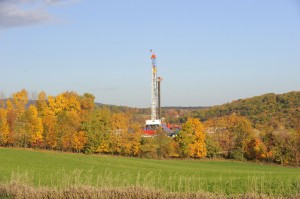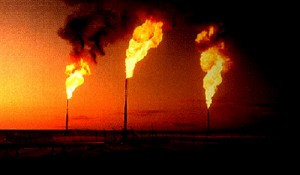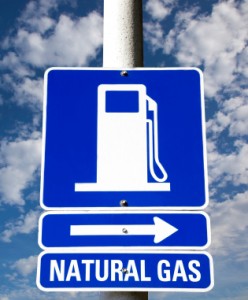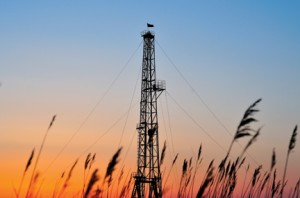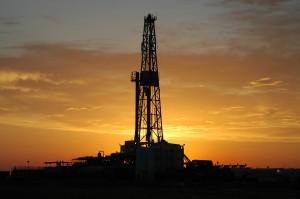14 item(s) were returned.
On March 20th, following a lengthy public review process, Secretary of Interior Sally Jewell unveiled new federal regulations for hydraulic fracturing on federal lands. According to the Department of Interior, these new standards are designed to (1) improve safety, (2) protect groundwater by updating requirements for well-bore integrity, (3) ensure wastewater is disposed of properly and (4) require public disclosure by companies of chemicals. The regulations will go into effect on June 24th, 2015. The fracking boom put the U.S. on track to be a leading producer of oil and gas, yet most of the production has taken place on… [more]
View InsightThe David R. Atkinson Professor of Ecology & Environmental Biology
Cornell University
The EPA recently announced new regulations for methane emissions, taking an important first step in reducing the impact of this highly potent greenhouse gas (GHG). But the rule falls short, in part because EPA has systematically underestimated methane emissions from the oil and gas industry. Emissions from conventional natural gas are likely to be at least 2- to 3-fold greater than the EPA estimates, according to several recent studies. Recent literature also suggests emissions from shale gas may be twice as much greater still, based on an observed large increase in methane in the atmosphere over recent years, with the… [more]
View InsightCo-Founder
Fuel Freedom Foundation
The lack of alternative energy sources to fuel our vehicles and replace expensive oil, jeopardizes U.S. national security, forces Americans to pay more at the pump, and greatly represses our ability to reduce pollution and address climate change concerns. In my state of California, 74% of all emissions – including CO2, toxic pollutants, ozone forming emissions and more – come from petroleum. Oil accounts for 65% of California’s GHG emissions, compared to 33% from natural gas, and less than 2% from coal. Meanwhile, each year, the U.S. spends more than $600 billion to buy oil and oil products, which is… [more]
View InsightProfessor of Physics
University of Califoria at Berkeley
Some oppose shale gas because it is a fossil fuel, a source of carbon dioxide. Some are concerned by accounts of the fresh water it needs, by flaming faucets, by leaked “fugitive methane”, by pollution of the ground with fracking fluid and by damaging earthquakes. Although I believe that global warming is real, caused by humans, and a threat to our future, these concerns about shale gas are either largely false or can be addressed by appropriate regulation such as the controversial but ultimately positive developments in Illinois. Shale gas can not only reduce greenhouse gas emissions, but also reduce a deadly pollution known… [more]
View InsightThe boom in oil and gas production in the United States has largely been heralded as a strong economic stimulus for the economy. For example, in an August 2013 interview, McKinsey partner Scott Nyquist outlined huge economic returns through increases in capital investment and jobs in the manufacturing sector. “This is an exciting game changer for the US economy,” said Nyquist. “It can create jobs through investment in the energy sector itself and through the ripple effects in other parts of the economy. It will increase the overall GDP of the country, which will increase the overall wealth and well-being… [more]
View InsightPennsylvania’s Act 13 of 2012 created a three-year Natural Gas Energy Development Program that will allocate $20 million in grant funds to purchase or convert vehicles to natural gas. The goal of Act 13 is “to help the state’s ongoing effort to move towards energy independence.” Last week, Pennsylvania’s Department of Environmental Protection issued the first $6.7 million of the competitive grant funds to 18 organizations across the state. The grant money comes from Pennsylvania’s drilling impact fee, which has raised $200 million from the gas industry flourishing in the Marcellus Shale. The grants are capped at 50 percent of… [more]
View InsightAccording to a recently released Harvard Law School report, the website FracFocus.org “fails as a regulatory compliance tool” for energy companies developing oil and gas wells using hydraulic fracturing. FracFocus, an online national hydraulic fracturing chemical registry managed by the Ground Water Protection Council and Interstate Oil and Gas Compact Commission, was established to provide the public with access to reported chemicals used for hydraulic fracturing within their area. Currently 11 of the 18 states that require disclosure of hydraulic fracturing chemicals allow companies to use FracFocus as their reporting method. FracFocus was also proposed by the Bureau of Land… [more]
View InsightA bill, recently introduced by Illinois State Representatives John Bradley and David Reis, to regulate hydraulic fracturing in the state is attracting support from both industry and environmental groups. The bill, House Bill 2615, introduced on February 21st, 2013, would impose new requirements on the oil and gas industry, such as: Public disclosure of all fracking chemicals before fracking begins Presumed liability of the oil and gas drillers for any environmental contamination near fracking sites, until proven otherwise Restrictions on venting and flaring of natural gas The bill’s supporters believe that it outlines an effective compromise that could open up… [more]
View InsightLast year, significant growth in natural gas production combined with low demand – due to a warm winter – caused natural gas prices to plummet below US$2 per thousand cubic feet. This benefited consumers, but forced some energy companies to abandon gas drilling programs and put significant pressure on their budgets, most notably Chesapeake Energy Corp. The decade-low prices also facilitated a transition in electric power generators from coal to gas, and in some cases nuclear to gas. However, according to EnergyWire, some analysts, like James Sullivan of Alembic Global Advisors, believe that this short-term electricity fuel transition has maxed… [more]
View InsightAccording to the “World Energy Outlook 2012,” report recently released by the International Energy Agency, the U.S. will overtake Saudi Arabia as the largest global oil producer by 2020, and become a net oil exporter by 2030. The report also predicts that by 2015 the U.S. will surpass Russia as the biggest producer of natural gas. These predicted shifts are driven by the recent increases in U.S. oil and gas production, which were spurred by upstream technology developments like hydraulic fracturing. Fatih Birol, chief economist at IEA, told New York Times, “the agency’s prediction of increasing American self-sufficiency was 55 percent… [more]
View Insight